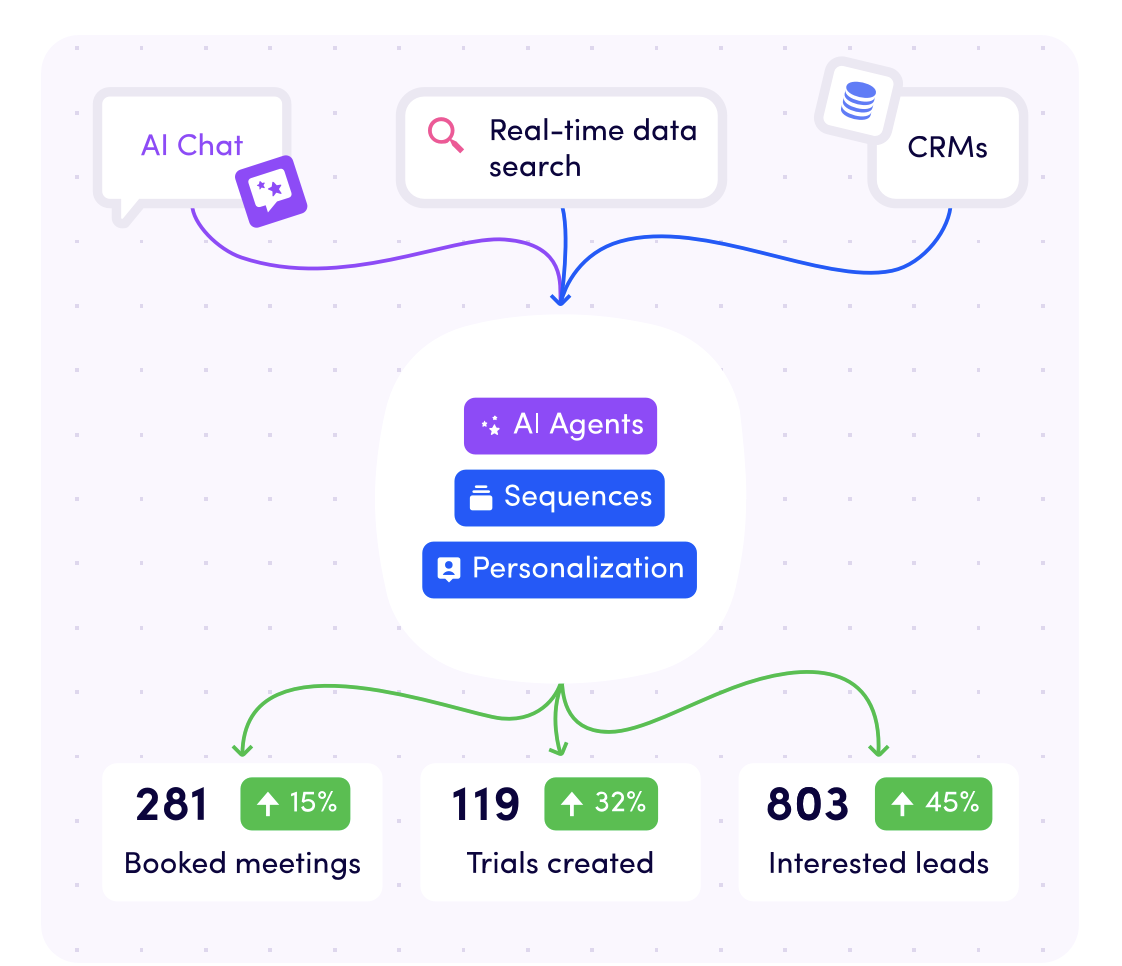Ever wondered how influential products become roaring successes? iPhone, AirFryers, wireless earphones, Tesla - what do they have in common? A team of experts deeply knowing their customers!
Product managers oversee the quest of taking a product from conception to creation.
Let's explore:
- What a product manager is
- What it takes to be one
- How to become a successful one
i. Immerse yourself in product management
ii. Learn the technical skills
iii. Hone the soft skills
iv. Build a product management portfolio
v. Network with people in your field
vi. Apply for a job
- Conclusion
- FAQs
Let's start!
What is a Product Manager?
A product manager is a business professional responsible for overseeing the development and launch of a product.
They work closely with teams having different skills, including engineering, design, and marketing, to ensure the product meets customer needs and business goals.
Their role is vital in driving product success by identifying market opportunities, creating product strategy, and making data-driven decisions.
This role doesn’t require a deep technical knowledge of all areas but leans on knowledge and experience in certain fields.
This includes UX (user experience), business strategy, product design, data, and marketing, all coming together to ensure a product meets business and consumer goals.
Do You Need a Qualification to Become a Product Manager?
No, you don’t. But be prepared to learn some things!
You will need to know the fundamental aspects that make up a product manager’s role.
We touched on these in the previous section when we mentioned UX, business acumen, product design and the like.
Even if you haven't studied these fields outright, you may find that you already possess many of the necessary product manager skills from your previous career path.
Product managers tend to come from a variety of backgrounds.
People move into this roles mid-way through their careers, transferring their skills and experience into it.
UX (user experience) is a discipline concerned with how the end-user, the customer, receives and experiences a product which is a priority for product managers.
If you’ve spent years as a salesperson, or other consumer-centric roles, you’ll likely have a deep understanding of how to influence and manage the customer experience.
This is a vital skill of product managers.
Another core component of this role is the ability to coordinate, strategise and manage complex projects with teams.
Again, if you have experience in a role that utilises these skills (retail management, business analytics, marketing,...), you're primed for the transition to product manager.
As long as you understand how to facilitate business goals with the resources available, you're golden!
To answer the original question, do you need a qualification to become a product manager?
There is no predetermined career path for this role so it’s not essential to qualify per se.
How to Become a Successful Product Manager?

There isn't a straightforward path to becoming a product manager through a single qualification.
But you can take several steps to navigate your journey successfully.
Here are 6 actionable steps you can take to become a product manager:
Immerse yourself in product management
Product management is a diverse field.
There are literally dozens of industries you can work in, each one requiring its own specific set of experience and skills.
However, like any management role, there are fundamental skills and knowledge areas you’ll have to possess in order to be any good.
Thankfully, there are countless resources available online that offer a peek or deep insight into product management. These include:
- Product manager books
- Product manager podcasts
- Product manager blogs
Once you’ve wrapped your head (and ears) around a handful of these, you’ll already start getting a feel for what’s involved as a product manager what you can expect the role to look like and its general duties.
You'll get a bird's eye view of
Learn the technical skills.
Product managers wield a cutting-edge blend of hard and soft skills.
The former will be picked up through study or experience and the latter can also be honed through study or refined in your current role.
As a product manager, you’re expected to have proficiency in the following technical areas:
-3.jpg?width=750&height=480&name=Resized%20Blog%20Headers%20(3)-3.jpg)
The simplest and most direct way to adopt these skills is to take a product management course.
It will allow you to learn all of the basics and develop technical skills with a high-level overview of what it takes to become a product manager.
There are plenty of options available, ranging from free to paid, short or long courses.

When you’ve nailed the basics, look to studying further in your specific field.
Whether that’s sales, marketing, UX design or something else, find courses that bolster your skillset with targeted knowledge.
Hone the soft skills
In addition to knowing your way around the ins and outs of product management, there are a host of soft skills that will empower your role.
Soft skills are highly transferable and increasingly highlighted as desirable for employers.
So don’t overlook what they can do for you and your entry into a career as a product manager.
Here are the soft skills you’ll need as a product manager:
- Critical thinking and analytical skills: as a product manager you’ll be faced with time-sensitive decisions every day. This makes critical thinking a fundamental trait when analysing data to deduce the best route forward for your teams.
- Problem-solving: product managers are responsible for creating a product that solves the problem of its users while overcoming the challenges this presents along the way. You’ll love dissecting problems to find suitable outcomes.
- Leadership: From hiring to training, forecasting to presenting ideas and plans, to resourcing and executing, there are lots of leadership elements in your product manager role. Creating successful products is no easy feat and good leaders will know how to align their teams.
- Time management and prioritisation: product managers have a lot to juggle. Teams require nurturing and guiding, deadlines have to be met, stakeholders want to be satisfied and the final product needs to produce results. Knowing what tasks take priority and which can be delegated, deleted or deferred is a must to keep things on track.
- Communication: product managers spend a great deal of time talking! From hosting meetings and check-ins to relaying progress to stakeholders, you’ll have to master the art of communication. A confident speaker and the ability to rally a room unites the collective as you drive products towards completion.

Unfortunately, some people believe that soft skills aren’t that important. However, almost every employer I’ve ever talked to about this disagrees. […]
Build a product management portfolio
Now you understand the fundamentals of becoming a product manager and what’s involved in the product lifecycle.
You are ready to start putting theory into practice and building your portfolio.
This is a website that can be sent to potential collaborators and employers.
It's worth noting that learning the fundamentals of product management might mean you understand what’s involved at each stage of the development process and have an overview of their inner workings.
But this doesn't necessarily qualify you to build a product from start to finish. And that’s okay!
This isn’t your role as the product manager, so don’t feel intimidated.
The best move is to break each stage down and demonstrate your ability within them. This could be
Whatever your primary skill is, focus on that and use multiple examples to fill out your portfolio.
Network with people in your field
61% of professionals say that regular networking can lead to new job opportunities.
So it bears mentioning for budding product managers.
LinkedIn is a great platform for connecting with professionals in your industry and striking up conversations over industry buzz and online content.
Local meet-ups and events are also fantastic opportunities to introduce yourself and connect with potential collaborators and professionals.
Be brave and apply for a job!
All of your hard work has led to this moment.
You have new-found knowledge and expertise, plus a portfolio to showcase your best efforts.
You’re finally ready to take the plunge and apply for your dream career!
It’s worth fine-tuning your resume to reflect relevant product manager skills before applying.
Once you’ve done this, head over to a number of job sites and start applying.
Try these popular product manager job sites:
The Final Word
There we have it! Our guide on becoming a successful product manager in 6 actionable steps.
This varied, challenging, exciting and lucrative career is a match made in heaven for critical thinkers.
For those who love to dissect problems, who enjoy collaborating and getting the best of their teams, and those who want to deliver exceptional products to customers.
You can build your skills and knowledge by leaning into product manager-type roles in your current organisation and enhancing your learning with courses and resources online.
From there, build out your portfolio, start networking and apply for product manager jobs.

FAQs
Which are the best product management books?
Here they are:
- "Inspired" by Marty Cagan
- "The Lean Startup" by Eric Ries
- "Cracking the PM Interview" by Gayle McDowell
- "Product Leadership" by Richard Banfield, Martin Eriksson, and Nate Walkingshaw.
These books offer valuable insights and practical advice for aspiring and experienced product managers.
What is product management?
Product management is the process of identifying market opportunities, creating a product strategy, and overseeing the development and launch of a product.
An example of product management in action would be the creation of the iPhone by Apple.
The product manager for the iPhone would have identified the market opportunity for a smartphone with a touchscreen interface, developed a product strategy to meet customer needs and business goals, and overseen the development and launch of the product to ensure its success in the market.
Become a Product Manager!
Master the fundamentals of product management as you learn about:
- Module 1 - Know your business, audience, and markets
- Module 2 - Know your customers as people and in numbers
- Module 3 - Value and purpose
- Module 4 - Product discovery and market fit
- Module 5 - Drive business value through measurement
- Module 6 - The zen of roadmap maintenance
Learning with Growth Tribe couldn’t be easier. All of our courses are designed to be flexible for the learner with self-paced content so you can manage your time and learning to best suit your lifestyle.
Join a community of over 35,000 certified alumni who share a passion for growing their skills and positively impacting their careers.






-3.jpg?width=750&height=480&name=Resized%20Blog%20Headers%20(3)-3.jpg)









